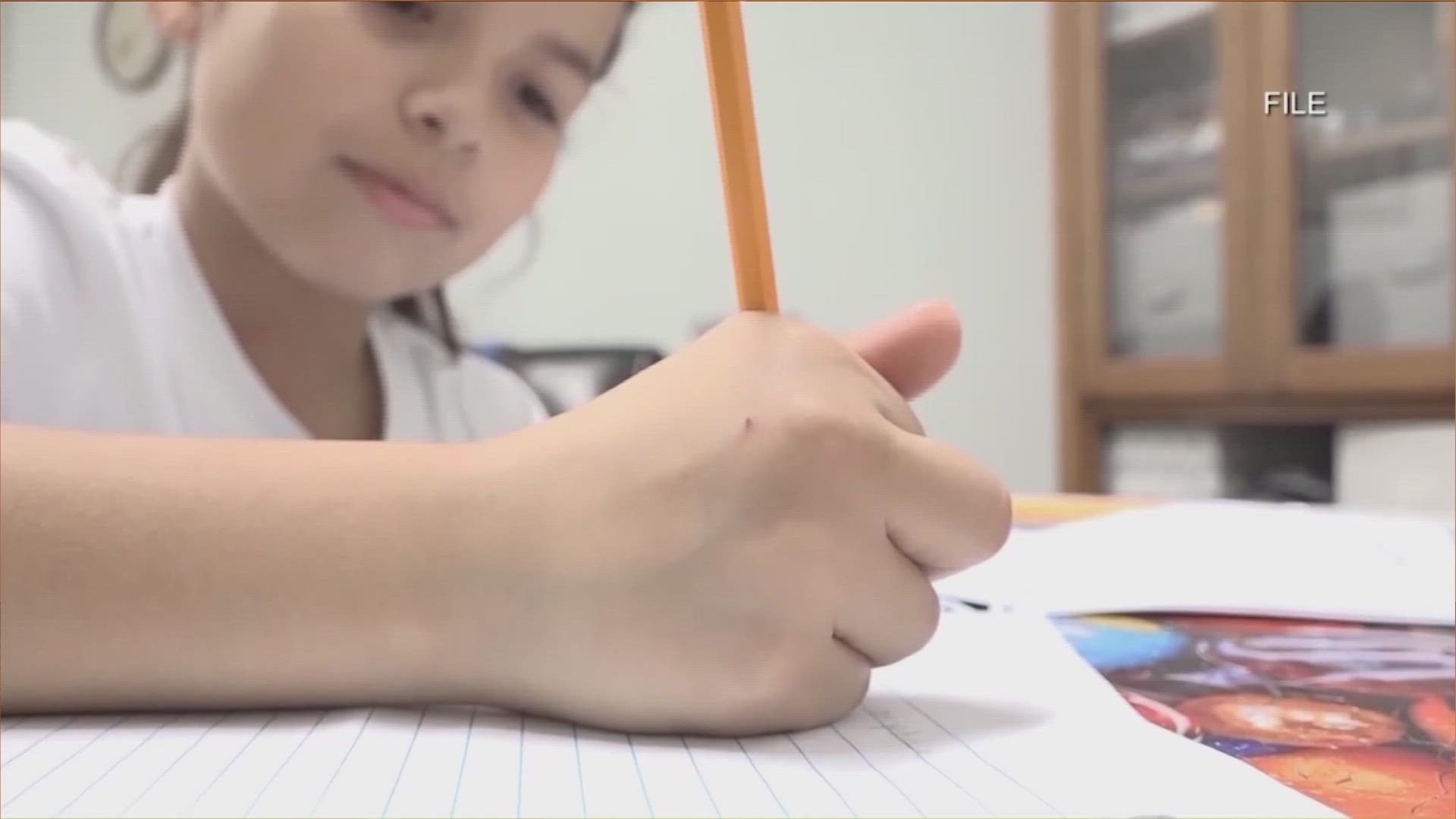HAYS COUNTY, Texas — Kids prepare for the STAAR test all year.
“This is four weeks worth of STAAR boot camp work that you guys should be proud of yourselves for,” Amanda Gonzalez said to her 5th grade class at Buda Elementary School.
Testing can make anyone nervous – especially this year. Because as some Central Texas students take their standardized tests this week, their written answers may not be graded by humans.
Texas schools are now relying on artificial intelligence (AI) to grade parts of the STAAR test.
“So, we don't know exactly what this is going to look like just yet,” Kevin Malandruccolo, Hays CISD's coordinator of testing and data, said.
The Texas Education Agency (TEA) said last year, the STARR test was redesigned to have more open-ended questions to reflect how kids actually learn in the classroom.
Due to the influx of written responses, educators need help from AI to get test scores out in a timely – and budget-friendly – manner.
Malandruccolo said this is how it should work.
“The scoring engine is programmed by TEA by, like, around 3,000 [human] responses and they train the system to score the responses appropriately,” Malandruccolo said.
Malandruccolo said 75% of the written test will be graded AI and 25% will still use human graders. The system will also flag things it's unsure of for people to review.
“I think educators, like most of us, continue to be a little bit nervous about artificial intelligence,” Kate Johanns said.
Johanns is the marketing and communications director for the Association of Texas Professional Educators. She said standardized tests are very important for Texas school districts.
“As far as a child's self esteem, the impact a teacher's performance ratings, the impact campus ratings. In turn, those all can affect things like property value,” she said.
Johanns, whose organization supports the largest community of educators, said teachers worry there isn't enough human oversight.
She said kids work hard, and they don't know how accurate AI testing results will be.
“The initial results in some of the districts across the state did produce some more zero scores on constructed responses,” Johanns said.
Malandruccolo said in December, the TEA allowed teachers to come look at results and see why.
“It was pretty accurate because there were a lot more zeros, but everyone saw it was scored appropriately. Some students wrote, you know, lots of things that just was either off topic or just not answering the question,” Malandruccolo said.
Malandruccolo said new technology can seem scary, but it's important to trust the process. He said it’ll be much faster, too.
“Last year, we didn't get results back until the first or second day of school. So, we are already starting school and making plans for students, not knowing their assessment data," Malandruccolo said. "So having the data now, like, at the end of May, like, mid June-ish, we will be able to make more timely decisions for what our students need heading into the next school year."
The TEA said it will save $15 to $20 million a year using AI instead of hiring human graders.
Johanns said educators hope that money is put towards students.
“We just need to keep an open mind and proceed with caution,” she said.
Malandruccolo said in mid-June, parents will be able to see their kid's test scores, including how they performed, what questions were on the tests, how the students answered those questions and how they were scored.

